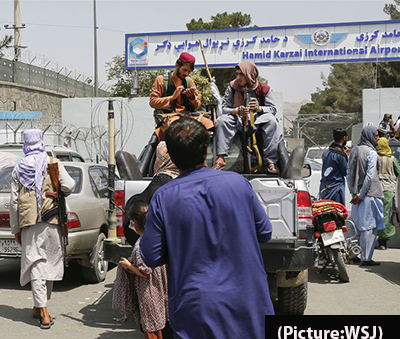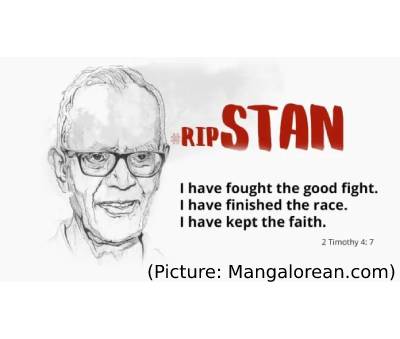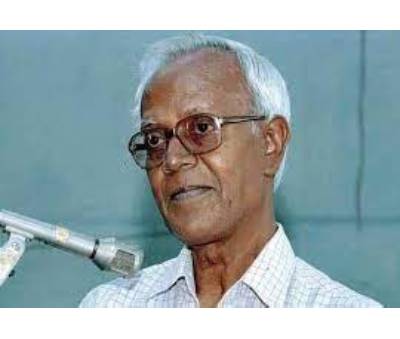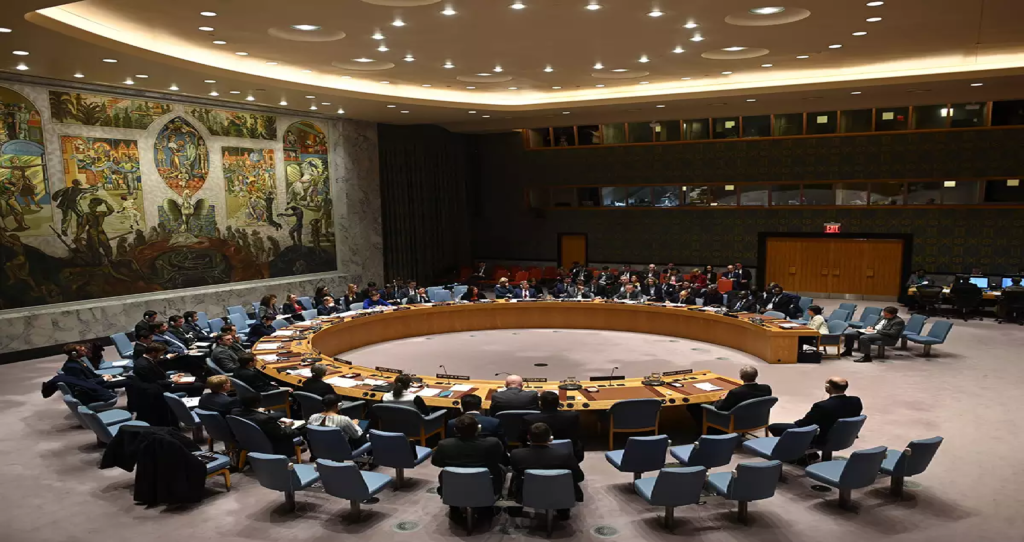When Ali (name changed) proposed to his best friend, little did he know that her parents would take six years to agree to their alliance because he was born into a Muslim family, and they were Hindus. “Everything they had heard all their life pointed to Muslims being violent, conservative, forceful etc. The idea of me being Muslim and marrying their Hindu daughter was too much to fathom despite them thinking of me highly,” he said in an interview with IPS.
This story is one of the few where the end was ‘happy’, and the family did not bow to societal pressure. However, if one looks at recent propaganda and the increase of Islamophobia in India, one concept which has added fuel to this fire is the fictitious propaganda of ‘Love Jihad’. Love Jihad is a term propagated by religious fundamentalist groups, alleging a conspiracy by Muslim men to convert non-Muslim girls in the guise of love.
The propagation of this concept is perhaps one reason why Ali had to struggle to convince his wife’s parents that his religion had nothing to do with his love for their daughter. While it may be easy to counter such a narrative, socially, with more awareness, what has made this term popular and the hate associated with it resulting, in some cases, in violence is the support it has garnered from right-wing political parties and their success at turning such marriages into a criminal offence.
“Social media platforms, such as Facebook and Twitter, host hundreds of pages and handles which post unverified incidents as ‘real news’ of Hindu women being deceived by Muslim men into marrying them and ending up either dead or as captives forced to convert and live in the homes of their supposedly violent Muslim husbands,” says Ashwini KP, an academic and rights activist based in Bangalore.
Challenging the provisions of one such draconian state law passed in the state of Gujarat as Gujarat Freedom of Religion (Amendment) Act, 2021, Advocate Isa Hakim, one of the petitioners’ lawyers, argued: “Amendments (in the Act), read with the discourse around Love Jihad, it is clear that the impugned Act is enacted with nothing but a communal objective and is thereby opposed to the constitutional morality, basic features and fundamental rights guaranteed under Articles 14, 19, 21, 25, and 26 of the Constitution.”
The Gujarat High Court, through an order on August 19, 2021, put a stay on the operation of several sections of the Act, including a provision that termed interfaith marriages as a means for forceful conversion. The order, the court stated, was being passed “to protect the parties solemnising inter-faith marriage from being unnecessarily harassed”. The state government soon after decided to challenge this order in the Supreme Court of India.
Addressing a rally last year in Uttar Pradesh, the chief minister Yogi Adityanath openly proclaimed: “Govt will work to curb ‘Love-Jihad’, we’ll make a law. I warn all those who conceal their identities and play with the respect of our sisters if you do not mend your ways, your ‘Ram naam satya’ journey (a phase associated with people being taken to be cremated) will begin”. Therefore, it is not surprising that in a state whose chief minister makes such open threats, right-wing groups have used love Jihad to stoke communal tensions and rioting. A total of five states in India, where the BJP is in power, have laws based on the conspiracy theory of Love Jihad, without actually using the phrase.
“It is also to undermine the agency of 21st-century Hindu women. We are a society that is afraid of its own daughters, and to keep a check on them prohibiting them from making their own choices, they (current regime) have brought out very Islamophobic and communal legislation under the garb of a safety and security issue for ‘their’ women,” says Sheeba Aslam Fehmi, research scholar and journalist in an exclusive interview with IPS.
Fehmi, also the president of Dhanak, works to protect the couples’ right to choose marriage or relationship partners. The organisation supports couples in inter-faith and inter-caste marriages. She told IPS they also try to assist interfaith couples with safe houses to ensure they do not become targets of right-wing attacks. Popular Indian jewellery brand Tanishq withdrew this advert with a depiction of an inter-faith marriage. It said while the campaign was to celebrate diversity it had prompted reactions “contrary to its objective”.
It is perturbing that couples who want to marry under the ‘Special Marriage Act’ (an Act passed by the Indian Parliament allowing interfaith marriages without conversion) have a section, which is now being challenged, where a 30-day notice is publicly displayed, inviting objections, before the marriage is registered.
Shital (name changed), shared with IPS how she received threatening calls from some right-wing groups once she and her Muslim partner decided to register under the Act.
“My Aadhar card (national ID) details were made public on a Facebook group. My parents, who approved of our alliance, received calls where they were threatened with ‘dire consequences’ if they did not stop our marriage,” Shital said. She called the marriage off because of these security concerns.
Asif Iqbal, the co-founder of Dhanak, said in an exclusive interview to IPS that they started the organisation because there was no support system for interfaith couples trying to marry using the Special Marriage Act. The objective was to organise people against religious fanaticism.
“I was made to sit for six hours in a police station in Delhi. The investigating officer was trying to enquire about a possible conspiracy as I was the last person an interfaith couple spoke to before they eloped. The boy was Muslim, and the girl Hindu,” said Iqbal.
The fear of vigilante groups, in the online and in actual physical spaces, is so prevalent that even brands advertising using the idea of inter-faith marriages, particularly where the boy is Muslim, are targeted as promoters of Love Jihad. A recent example was a popular jewellery brand depicting a Hindu woman and a Muslim man getting married. The advert was trolled on social media, that the company removed the advertisement from all forums.
For couples looking to challenge the draconian laws, the only recourse is the courts. However, the worrying feature is that Love Jihad targets Muslims and criminalises its men in a society with frequent incidences of Islamophobia.

 Lauren had left two messages that morning, as he slept with the phone ringer off in the bedroom. First, with good news that she was taking an earlier flight from New Jersey home to San Francisco. Then she called from the plane. There was “a little problem,” his wife said, but she was “comfortable for now.” She did not say she would call back, Grandcolas recalls. She said: “I love you more than anything, just know that. Please tell my family I love them too. Goodbye, honey.” “That moment I looked over at the television and there was a smoldering hole on the ground in Pennsylvania. They said it was United Flight 93,” said Grandcolas, 58. “That’s when I dropped to the ground.” All 44 people on board were killed. Lauren was 38 years old and three months pregnant with their first child. She had traveled East to attend her grandmother’s funeral in New Jersey, and then stayed a few extra days to announce the pregnancy — a little “good news to lift the spirits of her parents and sisters after burying their grandmother,” Grandcolas said.
Lauren had left two messages that morning, as he slept with the phone ringer off in the bedroom. First, with good news that she was taking an earlier flight from New Jersey home to San Francisco. Then she called from the plane. There was “a little problem,” his wife said, but she was “comfortable for now.” She did not say she would call back, Grandcolas recalls. She said: “I love you more than anything, just know that. Please tell my family I love them too. Goodbye, honey.” “That moment I looked over at the television and there was a smoldering hole on the ground in Pennsylvania. They said it was United Flight 93,” said Grandcolas, 58. “That’s when I dropped to the ground.” All 44 people on board were killed. Lauren was 38 years old and three months pregnant with their first child. She had traveled East to attend her grandmother’s funeral in New Jersey, and then stayed a few extra days to announce the pregnancy — a little “good news to lift the spirits of her parents and sisters after burying their grandmother,” Grandcolas said. When U.S. troops withdrew from Kabul’s Hamid Karzai International Airport within the stipulated time, the nation’s most prolonged war cost was more than $ 2.3 trillion. During the last 20 years, more than 2,400 U.S. service members have been killed in Afghanistan alone. World astonished to hear that even while retrieving, thirteen U.S. soldiers were killed in the latest suicide bombing in Kabul Airport. Taliban’s praise of China is aimed at gaining recognition for their government at the international level by establishing links with power like China. China and Pakistan are now the only countries in the region that fully support the Taliban.
When U.S. troops withdrew from Kabul’s Hamid Karzai International Airport within the stipulated time, the nation’s most prolonged war cost was more than $ 2.3 trillion. During the last 20 years, more than 2,400 U.S. service members have been killed in Afghanistan alone. World astonished to hear that even while retrieving, thirteen U.S. soldiers were killed in the latest suicide bombing in Kabul Airport. Taliban’s praise of China is aimed at gaining recognition for their government at the international level by establishing links with power like China. China and Pakistan are now the only countries in the region that fully support the Taliban. China
China QUOTES
QUOTES Most of them might not have served a single day in the
Most of them might not have served a single day in the  “Many of the Desi civil rights organizations in this country would make loud protests, justifiably so, at the slightest discrimination or physical attack on an Indian but remain largely silent to any level of atrocities committed to vulnerable groups in
“Many of the Desi civil rights organizations in this country would make loud protests, justifiably so, at the slightest discrimination or physical attack on an Indian but remain largely silent to any level of atrocities committed to vulnerable groups in  Last February 13, 2021, marks the civil rights lawyer and activist Sudha Bharadwaj’s 900 days in detention under the UAPA law.
Last February 13, 2021, marks the civil rights lawyer and activist Sudha Bharadwaj’s 900 days in detention under the UAPA law. Bishop Kevin C. Rhoades, who leads the doctrine committee of the U.S. Conference of Catholics Bishops, reiterated that the document will not bar any individuals from receiving Communion and said it is “going to be addressed to all Catholics, not a particular person or a single issue in the part on Eucharistic consistency.”
Bishop Kevin C. Rhoades, who leads the doctrine committee of the U.S. Conference of Catholics Bishops, reiterated that the document will not bar any individuals from receiving Communion and said it is “going to be addressed to all Catholics, not a particular person or a single issue in the part on Eucharistic consistency.” However, this does not give justice to hundreds of Christians and other minorities who sacrificed their lives due to the quest of the ruling party to declare India as a Hindu state. The poor departed souls must have been churning in their graves when they hear such statements. The injustices suffered by the 84-year-old Fr. Stan Sway alone should have been reason enough for Mr. Blinken to have been more cautious in his statements about human rights and respect for democratic principles by the government of India.
However, this does not give justice to hundreds of Christians and other minorities who sacrificed their lives due to the quest of the ruling party to declare India as a Hindu state. The poor departed souls must have been churning in their graves when they hear such statements. The injustices suffered by the 84-year-old Fr. Stan Sway alone should have been reason enough for Mr. Blinken to have been more cautious in his statements about human rights and respect for democratic principles by the government of India. We listened to your heartfelt words shortly before your arrest on Oct. 8, 2020: “What is happening to me is not something unique — happening to me alone. It is a broader process that is taking place all over the country … In a way I am happy to be part of this process. I am not a silent spectator, but part of the game, and ready to pay the price whatever be it.” On May 21, you told Bombay High Court about the sufferings you were undergoing in jail. It had been eight months since you were brought there with your body fully functional. You could have a bath by yourself and also do some writing.
We listened to your heartfelt words shortly before your arrest on Oct. 8, 2020: “What is happening to me is not something unique — happening to me alone. It is a broader process that is taking place all over the country … In a way I am happy to be part of this process. I am not a silent spectator, but part of the game, and ready to pay the price whatever be it.” On May 21, you told Bombay High Court about the sufferings you were undergoing in jail. It had been eight months since you were brought there with your body fully functional. You could have a bath by yourself and also do some writing. Secondly, I feel happy for him because Fr. Stan is now in a better state than he was, while alive in circumstances such were inflicted on him for reasons he could not understand. There is a school of thought that it is easier for an innocent man to suffer. They think so because they have never suffered, innocently or otherwise. The anguish in guilt-less suffering is that one’s suffering makes no sense. It is absurd. What is absurd is unendurable. If you are punished for your wrongdoings, then you can reconcile yourself to your plight. Think, if you dare, of the plight of an old and chronically ill man in a prison. Prison-life conditions, including the psychological poison that goes with it, being what they are, even individuals much younger than Fr. Stan and in better states of health disintegrate fast. Fr. Stan himself said that it is better to die than to be in prison the way he was. So, why shouldn’t we celebrate his release from misery through the mercy of death, for neither mercy nor justice was likely to reach him in any other way?
Secondly, I feel happy for him because Fr. Stan is now in a better state than he was, while alive in circumstances such were inflicted on him for reasons he could not understand. There is a school of thought that it is easier for an innocent man to suffer. They think so because they have never suffered, innocently or otherwise. The anguish in guilt-less suffering is that one’s suffering makes no sense. It is absurd. What is absurd is unendurable. If you are punished for your wrongdoings, then you can reconcile yourself to your plight. Think, if you dare, of the plight of an old and chronically ill man in a prison. Prison-life conditions, including the psychological poison that goes with it, being what they are, even individuals much younger than Fr. Stan and in better states of health disintegrate fast. Fr. Stan himself said that it is better to die than to be in prison the way he was. So, why shouldn’t we celebrate his release from misery through the mercy of death, for neither mercy nor justice was likely to reach him in any other way? Ever since the fall of the USSR, he said, the UN Secretary-General has become subservient to the US government (“we saw this shockingly with the treatment of former Secretary-General Boutros Boutros-Ghali”). The new ‘Group of Friends to Defend the UN Charter’, which includes China and Russia, is a positive development, said Prashad.
Ever since the fall of the USSR, he said, the UN Secretary-General has become subservient to the US government (“we saw this shockingly with the treatment of former Secretary-General Boutros Boutros-Ghali”). The new ‘Group of Friends to Defend the UN Charter’, which includes China and Russia, is a positive development, said Prashad.